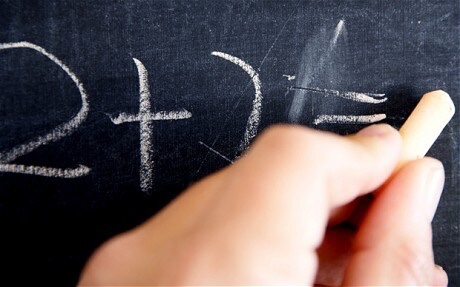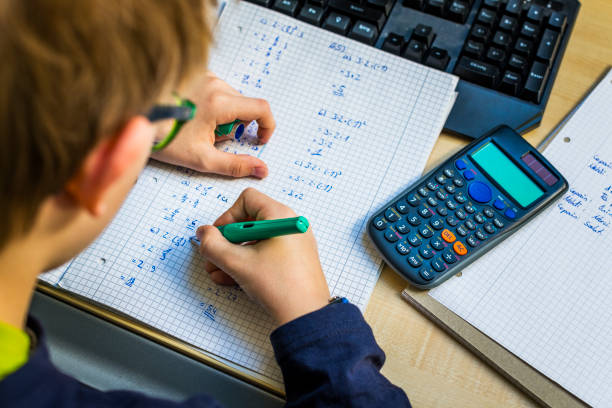Are Calculators Ruining Our Math Skills?

Calculators have been around for centuries, undeniably revolutionising the way math is structured. However, with 21st-century mechanisation, calculators have increased their efficiency, accuracy, and versatility. These improvements have now completely changed the way we use these devices, for the good and for the bad. Nowadays, calculators are able to execute complex and multi-faceted problems rapidly, enhancing our ability to solve harder questions. These enhancements have irrefutably shown that math is now easier, especially in fields of calculations such as engineering, physics, and finance. Additionally, the high accessibility of calculators has made the possession of these devices ubiquitous, especially in schools where math is mandatory. Calculators, however, are notoriously known for how they work out our problems, requiring little to no intelligence in the matter. Could this mean that, with excessive use, many people could lose their mathematical proficiency?
The debate over whether calculators are ruining our math skills is a complex one. While calculators can be incredibly useful tools for solving mathematical problems, their over-reliance can potentially have negative consequences for mathematical proficiency. In this essay, we will explore both the benefits and drawbacks of calculators in the context of the development of math skills.
On one hand, calculators are ruining our math skills. For only £19.99 on the Casio website, the possession of a calculator has become an integral part of math, as shown through the millions of calculators owned internationally. With such accessibility, it is easy to become overly dependent on a calculator. This leads to a decline in mental math abilities due to the ease of plugging a few numbers into a screen. Some could argue that individuals may not fully develop their arithmetic skills, including basic addition, subtraction, multiplication, and division, as they can just use their calculator. Over time, this can lead to a diminished capacity for mental calculation, which is an important mathematical skill in daily life. Furthermore, too much access to calculators may hinder one’s problem-solving skills. Math is based on the concept of understanding and the process of coming to a conclusion. Calculators will be able to skip those crucial steps and may not show the student how to get the correct answer if they were to do it alone. This could limit their ability to think critically.
Ultimately, the high access to calculators could mean that users are at the demise of the calculator’s errors. There is a 0.0975% chance that calculators could be wrong; although this quantitative data is infinitesimal, there is still a probability of error. This demonstrates that calculators, while highly accurate, are not infallible. Due to its reputable status, people may not realise that the calculator could provide an incorrect conclusion, which limits their mathematical initiative, as people tend to believe their calculator over themselves. This lack of consideration for the result they obtain is detrimental to their arithmetic, as they’ll lose their initiative to do it themselves. Ultimately, calculators could lead to overconfidence. This can then lead to a superficial understanding of the mathematical concept. Individuals would believe they have understood the topic, but realistically, they have bypassed the principles and foundations that lead up to the questions, which are the most crucial. 76% of math is based on principles, tremendously outweighing the importance of the answer. If someone focuses on the calculator’s answer, about ¾ of the skill has gone out of the window. This leads to the fact that a person would lose some of the skills he could’ve gotten.

On the other hand, calculators could, in fact, broaden an individual’s mathematical horizons. David Boorman states in his 2015 report on calculators that ‘they can develop conceptual understanding, support and improve mental and written methods, be a stimulus for dialogic talk, provide instant feedback, and help to develop key mathematical ideas.” These abilities gained from calculators could argue that these devices are in fact enhancing our mathematical skills rather than destroying them. In addition to this, calculators enable students to tackle more complex problems that would be impractical to solve manually. In further math, calculators are often indispensable for performing lengthy and intricate calculations, allowing students to actually focus on the concept and understanding of the theory rather than the simple addition itself. This gives them the time to actually gain knowledge of the principle and thus learn the skill.
Additionally, they broaden more people’s mathematical horizons, especially those with disadvantages, making math more accessible to them, which would be impossible without a calculator. Letting them gain simplistic math skills instead of none. Finally, modern calculators often come equipped with a wide range of mathematical functions, including algebraic, trigonometric, and statistical operations. This versatility allows students to explore various mathematical concepts, gaining more knowledge and skills than without it. Finally, with a calculator, you are given speed at your disposal. This gives you more time to develop your knowledge of the theory and your criticality of the problem. Ultimately, in a professional setting, the calculator gives you an advantage in tests and careers that require quick decisions. The extra speed will make you stand out from the crowd, equipping you with the mathematical skill of mental agility.

In conclusion, calculators are not inherently detrimental to our math skills. They are powerful tools that can enhance our mathematical capabilities when used appropriately. On the other hand, if used inappropriately, people could become over-reliant on calculators for math, even for the basic.This unfortunately leads to less practice of mental math, and like always, without practice, one tends to lose their ability. In this case, it's with mathematics. However, there is a balance. We need to draw a line between manual and calculator problems in order to get the advantages of both sides. For schools, they should emphasise the importance of mental math but also show how to use calculators effectively. When used as aids rather than replacements for mathematical thinking, calculators can coexist with the development of strong math skills, to develop a deeper understanding of mathematical principles.